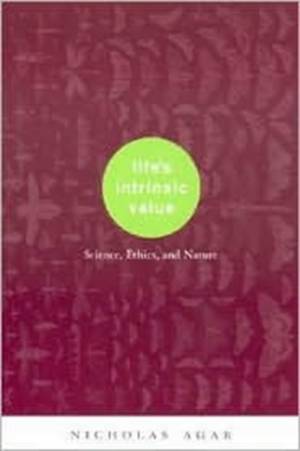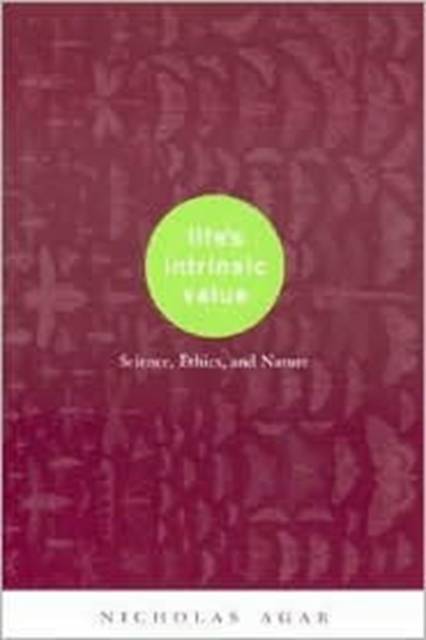
- Afhalen na 1 uur in een winkel met voorraad
- Gratis thuislevering in België vanaf € 30
- Ruim aanbod met 7 miljoen producten
- Afhalen na 1 uur in een winkel met voorraad
- Gratis thuislevering in België vanaf € 30
- Ruim aanbod met 7 miljoen producten
Zoeken
€ 71,45
+ 142 punten
Omschrijving
Are bacteriophage T4 and the long-nosed elephant fish valuable in their own right? Nicholas Agar defends an affirmative answer to this question by arguing that anything living is intrinsically valuable. This claim challenges received ethical wisdom according to which only human beings are valuable in themselves. The resulting biocentric or life-centered morality forms the platform for an ethic of the environment.
Agar builds a bridge between the biological sciences and what he calls "folk" morality to arrive at a workable environmental ethic and a new spectrum--a new hierarchy--of living organisms. The book overturns common-sense moral belief as well as centuries of philosophical speculation on the exclusive moral significance of humans. Spanning several fields, including philosophy of psychology, philosophy of science, and other areas of contemporary analytic philosophy, Agar analyzes and speaks to a wide array of historic and contemporary views, from Aristotle and Kant, to E. O. Wilson, Holmes Rolston II, and Baird Callicot. The result is a challenge to prevailing definitions of value and a call for a scientifically-informed appreciation of nature.Specificaties
Betrokkenen
- Auteur(s):
- Uitgeverij:
Inhoud
- Aantal bladzijden:
- 192
- Taal:
- Engels
Eigenschappen
- Productcode (EAN):
- 9780231117876
- Verschijningsdatum:
- 7/05/2001
- Uitvoering:
- Paperback
- Formaat:
- Trade paperback (VS)
- Afmetingen:
- 152 mm x 229 mm
- Gewicht:
- 317 g

Alleen bij Standaard Boekhandel
+ 142 punten op je klantenkaart van Standaard Boekhandel
Beoordelingen
We publiceren alleen reviews die voldoen aan de voorwaarden voor reviews. Bekijk onze voorwaarden voor reviews.











